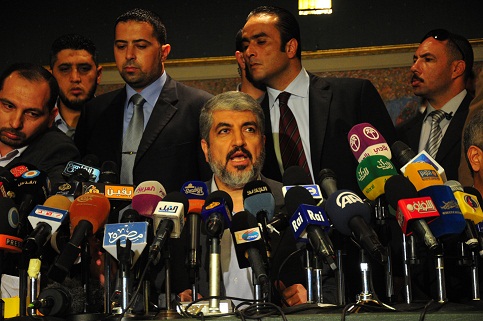By Nihal Mounir
Several chambers of the Federation of Egyptian Industries (FEI) have voiced opposition to donating to the “Billion EGP Initiative”, introduced by the FEI Board of Directors.
The Leather Industry Chamber has called for an extra meeting of its general assembly to discuss whether a donation should be made on its part or not.
The head of the Leather Industry Chamber, Gamal Samalouti, said the leather industry has not yet recovered from its economic problems. Many of these are related to the high volume of foreign imports in the domestic markets, and the continued lax enforcement at customs outlets.
He added that that leather industry sales fell over 35% because of their inability to compete against foreign import. Samalouti added that in light of these crises it is difficult for the local investor to provide donations.
Mohamed Al-Suwaidi, FEI’s Board Chairman, announced the initiative to collect EGP 1bn from Chambers of Industry before the end of the year for the “Tahya Masr” Fund to support Egypt’s economy.
Dr Mohammed Saad El-Din, Deputy Chairman of the Petroleum and Mining Chambers, said that donations for the current period should be investment projects addressing the unemployment crisis, with special attention given to workers returning from Libya after local unrest.
He added that these projects increase growth rates and work to solve the inflation crisis while also improving GDP.
He said the “Tahya Masr” Fund is not the first initiative to generate donations for the economy, but many have proven unsuccessful due to the absence of a leadership managing the funds. Following this, he said, those funds transformed from a means to support the economy to a “media show.”
He stressed that the Chamber will hold a meeting soon to research projects in which to invest that will help support the economy.
Magdy Aloulily, Board Member of the Chamber of Grain Industries, said that the Chamber refuses to donate cash, especially in the absence of transparency in administrating these funds.
He added that he adopted in coordination with the Social Development Fund, the National bank of Egypt, and the Arab Organization for Industrialization, the idea for a project to combat the high cost of living.
The project will involve the construction of mobile sales outlets for basic goods throughout Egypt and will provide approximately 1,200 job opportunities. The Ministries of Interior, Supply, and Trade, will contribute to the provision of inexpensive products for citizens through the project.
Ahmed Shaarawy, of the Chamber of Textile industries, said that financial contributions in the form of funds and initiatives to support the economy have recently proved to be failures.
He added that demands for donations and pressures on businessmen to support the economy do not take into account the problems suffered by local industry. These include a power crisis, high foreign import bills, and an associated decline in the productive capacity and subsequent losses for factories.
Shaarawy asserted that the government must first offer solutions to manufacturers’ problems instead of pressuring them to donate to the economy. They have, instead, ignored the crisis that has plagued industry since the 25 January Revolution, he said.



